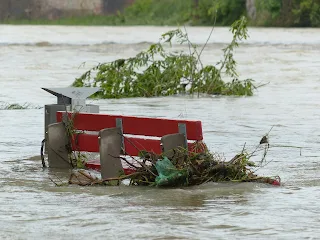Disaster management is defined as the organization and management of resources and responsibilities for dealing with all humanitarian aspects of emergencies, in particular preparedness, response and recovery in order to lessen the impact of disasters. It refers not only to steps taken after a disaster occurs, such as providing shelter and food to those affected by an earthquake or fire, and rebuilding property that has been destroyed, but also includes preventive measures that are taken by the government as well as citizens to avert impending loss of life and property when a disaster is expected to take place. For example,in 2014 when Hudhud, a cyclone of intense severity, was expected to strike the eastern coast of India, fisherman were warned not to venture into the sea, citizens were advised to stay indoors and hourly updates regarding the movement of the cyclone were broadcast. Thousands of people living in low lying areas were evacuated and given shelter in safe places. Though the damage to property in and around vishakapatnam was colossal, the loss of lives was greatly minimized because of good disaster management.
Given below are some of the measures that can be taken by people to minimise the impact of natural disasters.
Cyclone
•keep track of the weather warnings that are being broadcast on T.V or the radio . This will help you prepare for emergency evacuation.
•prepare an emergency kit consisting of dry food , water warm clothes etc.
•Remain indoors. Be always in the strongestbuilding.
•Board up the windows and lock the doors.
•At the onset of the cyclone, disconnect all electrical appliances and turn off the gas . Do not venture outdoors till it is declared safe to do.
Heat weave
•Avoid going out when Sun is present like from 12.00noon and 3.00p.m.
•Drink full water even there is no thirsty.
•Avoid alcohol, tea, coffee and carbonated soft drinks as these dehydrate the body.
•Avoid high-protein food and do not eat stale food.
•keep animals in the shade and give them plenty of water to drink.
Sun stroke
• make the affected person lie in a cool place or in the shade. Wipe her/him with a wet cloth/ wash the body frequently. Pour water of normal temperature on the head. It is important to keep low body temperature.
•Give the person ORS to drink or lemaon sarbat to rehydrate the body.
•Take the person immediately to the nearest health center. The patient needs immediate hospitalisation as heat strokes can be fatal.
Flood
If a flood is likely to hit your area, one should:
•Listen to the radio or television for information.
•Be aware that flash flooding can occur . If there iss any possibility of a flash flood, move immediately to higher ground.
•Be aware of streams,drinage channels, canyons, and other areas known to flood suddenly. Flash floods can occur in this areas with or without typically warning such as rain clouds or heavy rain.
•Turn off all the main switches or valves if instructed to do so. Disconnect electrical appliances . Do not touch electricity when you are wet.











